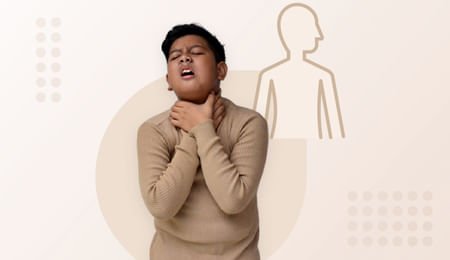
Acidity is one of the most common ailments that almost every one of us might have experienced once in our lifetimes. In simple terms, it is a condition that causes excess acid production in the stomach. This not only causes discomfort in the stomach but also leads to other symptoms such as sour taste in the mouth, difficulty in swallowing, and indigestion. There are numerous causes of acidity right from poor eating habits and excessive stress to use of certain medications. Moreover, lifestyle factors such as smoking and consuming foods loaded with oil, fats, and spices can also up your risk of acidity. If you experience acidity once in a while it may not indicate any health issues. However, if you suffer from frequent bouts of acidity, where the symptoms occur at least two or more days per week, there might be some underlying disorder associated with it. It is advised to consult your doctor in such cases.You can fight acidity with simple lifestyle changes and effective home remedies such as tulsi, mint, fennel seeds, and cold milk. In most cases, over-the-counter medications to reduce/neutralise the acid are known to be of great help.

Acne is a common condition, which most of us have dealt with at some point in our lives. Acne, or acne vulgaris, is a skin condition where the pores and hair follicles of the skin get clogged with sebum, which is an oily, wax textured substance secreted from the skin glands. Although the face is the most commonly affected part, acne can occur anywhere on the body like the chest, shoulders and upper back. Acne is mainly of two types, comedogenic and non-comedogenic. Comedogenic acne is mainly non-inflammatory and can be seen in the form of whiteheads and blackheads. Non-comedogenic acne, on the other hand, is inflammatory and may be red, pus-filled, and painful. The treatment of acne comprises topical, systemic, and lifestyle remedies. In topical remedies, your doctor will prescribe ointments or cleansers. Systemic therapy consists of either antibiotics or hormonal preparations to keep the acne at bay. Lifestyle changes for acne majorly include a clean diet, better hydration and regular exercise. Timely treatment of acne can be of great help in preventing acne scars in future.

Allergies are caused when the body’s immune system responds abnormally to an external trigger known as ‘allergen’. These allergens are present in our environment but do not usually incite an immune response in other people. While in some people, the body’s immune system generates antibodies against these foreign bodies or allergens. This causes inflammation and leads to various symptoms that can range from being mild to quite severe. The symptoms of allergy vary such as mild sneezing, runny nose, swelling of face, swelling of the tongue, skin rash, itching, and difficulty in breathing, etc. Anaphylaxis is a severe reaction to any type of allergy which can be life-threatening, if not promptly treated. Allergies are widely prevalent across the world. These can be caused due to different types of allergens such as dust, molds, mites, foods like nuts, fish, and medicines like penicillin. Clinical treatment for allergies is suggested with antihistamine medicines, steroids, and OTC preparations to provide relief from symptoms.

Alzheimer's disease (AD) is a slowly progressive disorder of the brain that fades away memory. It is characterized by disturbances in thinking skills, reasoning, language, and perception and, eventually, the ability to carry out simple daily tasks. The exact cause of Alzheimer's disease is not known. However, accumulation of amyloid proteins and tangled bundles of fibers called neurofibrillary, or tau tangles, in the brain are suspected to play a role. Alzheimer’s disease is not a normal part of aging and is not something that inevitably happens in later life. However, the likelihood of having Alzheimer's disease increases substantially with advancing age. A combination of age-related brain changes, genetic, environmental, and lifestyle factors are thought to increase the risk of this condition. Though AD is not entirely preventable, ensuring an extensive social network, and frequent participation in social, physical, and intellectually stimulating activities like reading, playing games, participating in adult education courses, and other recreational activities can delay its onset. Current Alzheimer's medications can help temporarily with memory symptoms and other cognitive changes. Caregivers play an extremely pivotal role in helping the patient with their daily needs and activities as well as protecting them from any danger.

Amenorrhea is defined as the absence of menstruation during the reproductive years of a woman's life. It can be categorized into primary and secondary. Primary amenorrhoea is when a woman never had menstrual periods, and in secondary amenorrhoea, there is the absence of menstrual periods in a woman who was previously menstruating. The causes of primary amenorrhea are defects in the ovaries, problems with the reproductive organs, and issues with the pituitary gland, and the central nervous system. Secondary amenorrhea can result from natural causes like pregnancy, and breastfeeding or other causes like low body weight, mental stress, excessive exercise, hormonal imbalance, and birth control pills. A variety of tests are necessary for the diagnosis of amenorrhoea including pregnancy, thyroid function test, ovary function test, male hormone test, and prolactin test. Treatment mainly depends on the cause of amenorrhea. If the cause of amenorrhea is a hormonal imbalance then hormone replacement therapy can be administered. If amenorrhea is due to malnutrition, a proper diet plan can cure the patient successfully. In some cases, surgery is required that can treat anatomical causes of amenorrhea.

Anaphylaxis is a severe, life-threatening allergic reaction that can affect multiple systems of the body at the same time. Common triggers of this reaction include certain foods, insect stings, some medications, or latex. However, anaphylaxis is rare. The majority of people, even those with allergies, might never suffer from an episode of anaphylaxis.The symptoms of anaphylaxis include tongue swelling, vomiting, difficulty in breathing, mental confusion and even shock. These symptoms occur due to over reaction of the immune system.People with allergies, asthma and a family history of anaphylaxis are at a higher risk of anaphylaxis. If someone is at a higher risk or has a known serious allergy, avoidance is the best form of treatment.Anaphylaxis requires immediate medical treatment because if it is not treated timely or properly, it can be fatal. If someone has a history of a serious allergic reaction, it is important to always carry an adrenaline(epinephrine) kit.Accurate diagnosis and successful management of allergies is essential to prevent any anaphylactic reactions in the future. An allergist or immunologist, has specialized training and experience to diagnose the problem and develop a prevention plan.